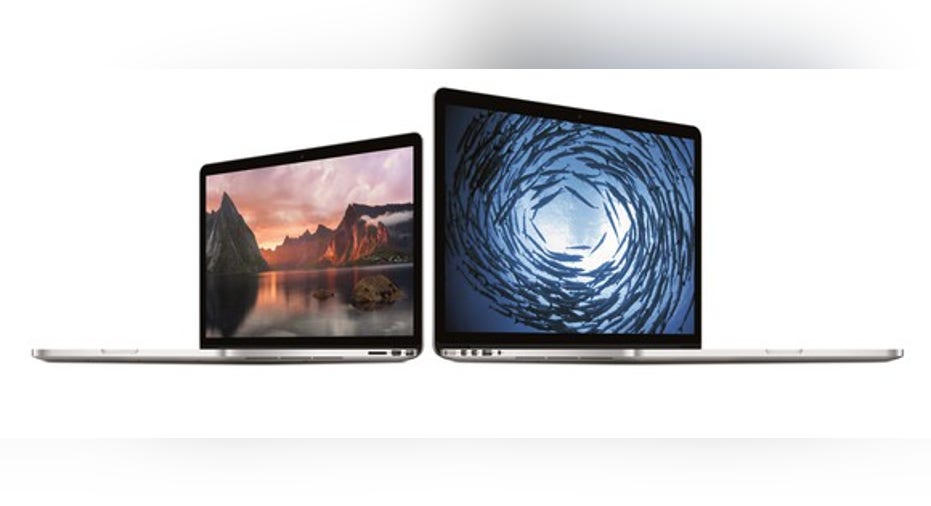Why Apple Inc.'s Upcoming MacBook Pro Probably Won't Use Intel's Kaby Lake

Image source: Apple.
The Next Web recently published an article going over what Apple (NASDAQ: AAPL) may include in its next-generation MacBook Pro lineup due out later this year. Among other predictions, the author says that the new MacBooks will "almost definitely" feature Intel's (NASDAQ: INTC) Kaby Lake processors.
Here's why this is unlikely to be the case.
Yes, Intel is shipping Kaby Lake, but...
On Intel's most recent earnings call, CEO Brian Krzanich told investors that the company had begun shipping Kaby Lake processors. Kaby Lake is the successor to the current-generation Skylake family of processors, and on the surface, it would make sense that if Intel is shipping Kaby Lake now, Apple would want to get in on these improved processors.
However, it's worth noting that Intel doesn't just release one processor based on a given architecture -- it releases quite a few, aimed at different performance, power, and cost points. Additionally, it doesn't release these chips all at once. Typically, the easier to build variants come first with more complex/powerful variants come later.
An updated 15-inch MacBook Pro is likely to use a quad-core processor with Iris Pro graphics. Considering that Intel released Skylake chips with Iris Pro graphics in the first quarter of 2016, it's unlikely that we will see Intel release Kaby Lake processors with Iris Pro graphics until sometime in 2017.
This means that if Apple intends to refresh the 15-inch MacBook Pro this year, it's going to go with Skylake, not Kaby Lake.
A refreshed 13-inch MacBook Pro is likely to use a dual-core processor with Intel's Iris graphics. Intel offers such chips at two power ratings, 15 and 28 watts, and historically the 13-inch MacBook Pro has used 28-watt variants (while the MacBook Air used the 15-watt versions).
Intel announced a 28-watt Skylake chip with Iris graphics back in late 2015 and I was able to find at least one shipping system with the processor available for sale, so Intel isn't to blame for Apple not refreshing the 13-inch MacBook Pro sooner.
That being said, a leakfrom generally reliable BenchLife.info from late last year shows that Intel didn't plan on getting out a Kaby Lake chip with Iris graphics until sometime between the 6th and 18th workweeks in 2017. If Apple is launching new 13-inch MacBook Pro systems in 2016, Skylake-based processors represent the only viable options.
Will this matter to Apple?
Apple seems to release new Macs on its own schedule, rather than based on when Intel releases new processors. If Apple were a typical commodity Windows PC maker, being late to adopt Intel's latest processors would probably hurt its market share position.
As the only vendor of systems using Mac OS, Apple relies heavily on software and ecosystem features to help sell its systems. Additionally, the company tries to deliver hardware value in ways beyond the processor, such as aesthetically pleasing industrial designs, display technologies, trackpads, storage technologies, and more.
In other words, the hardware is just the means by which the company delivers its intended user experience.
As long as this year's new MacBook Pros represent fundamentally improved user experiences compared to the prior-generation models, then whether the systems use Skylake- or Kaby Lake-based processors likely isn't going to matter much, if at all, in the marketplace.
A secret billion-dollar stock opportunity The world's biggest tech company forgot to show you something, but a few Wall Street analysts and the Fool didn't miss a beat: There's a small company that's powering their brand-new gadgets and the coming revolution in technology. And we think its stock price has nearly unlimited room to run for early in-the-know investors! To be one of them, just click here.
Ashraf Eassa owns shares of Intel. The Motley Fool owns shares of and recommends Apple. The Motley Fool has the following options: long January 2018 $90 calls on Apple and short January 2018 $95 calls on Apple. The Motley Fool recommends Intel. Try any of our Foolish newsletter services free for 30 days. We Fools may not all hold the same opinions, but we all believe that considering a diverse range of insights makes us better investors. The Motley Fool has a disclosure policy.



















